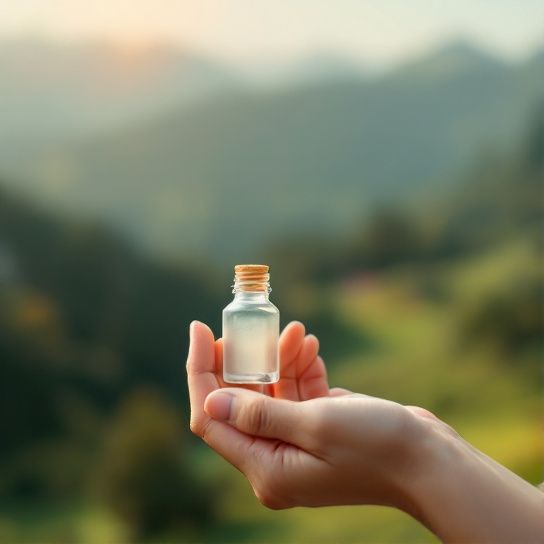Hey there! If you’ve ever stood in front of a mirror, perhaps squinting at a new wrinkle or frowning at fine lines, you’ve probably wondered, “Can natural skincare really do anything for anti-aging?” Maybe you’re like many of us, caught in the whirlwind of myths and claims. Some say natural products are magical; others scoff, calling them nothing more than fancy oils and creams. So, what’s the deal? Let’s dive into this rabbit hole together, exploring the myths and uncovering some solid, natural solutions.
Debunking Common Myths: Setting the Record Straight
Before we can even start chatting about what works, we’ve got to clear the air on a few stubborn misconceptions that just won’t quit.
Myth 1: Natural Skincare is Ineffective for Anti-Aging
One big myth is that natural skincare products can’t hold a candle to those high-tech bottles with unpronounceable ingredients. It’s easy to think that only complex chemicals and cutting-edge lab creations can turn back the clock on your skin. But here’s the twist: nature has been in the game way longer than labs. Many effective natural ingredients have been used for centuries and credit where credit’s due, they work wonders!
Myth 2: All Natural Products Are Safe and Non-Irritating
Another common belief: if it’s natural, it must be gentle and perfectly safe. Not necessarily. Remember, natural doesn’t mean hypoallergenic or suitable for all skin types. Things like essential oils can be potent and irritating if misused. It’s crucial to know your skin’s limits and do patch tests.
Myth 3: Natural Equals Organic or Chemical-Free
Natural products often get lumped together with terms like “organic” or “chemical-free.” Spoiler alert: they’re not all the same. “Natural” might mean ingredients derived from nature, but it doesn’t automatically certify them as organic or without synthetics. Understanding these distinctions is key in setting realistic expectations—and in making mindful choices.
The All-Natural Power Troops: Ingredients You’ll Love
So, let’s talk about some stars in the natural skincare world—the real MVPs if you will.

Botanical Antioxidants
Mother Nature has a treasure trove of antioxidants, each with anti-aging benefits. Think of green tea, berries, and grape seed extract. They work tirelessly to fight off free radicals, those annoying toxins that can contribute to aging. Regular application can help in maintaining and reducing fine lines.
Natural Oils: More than Just a Glamour Thing
Oils like rosehip, argan, and jojoba have been fan favorites. Why? They’re packed with fatty acids and vitamins that nurture and repair the skin barrier, promoting a healthy glow and reducing sagging.
The Wonders of Algae
Sounds a bit too fishy? Give it a second thought. Algae or seaweed form part of the charming marine treasures known for firming and nourishing the skin. Loaded with vitamins A, C, and E, these oceanic ingredients leave your skin plump and hydrated.
Vitamin C: The Bright Star
It’s no secret vitamin C brightens the skin and evens out tone. Loaded in citrus fruits and found naturally in some berries, its antioxidant properties can help boost collagen production. Quite a catch for something that feels so ordinary!
A Truthful Chat About Expectations
Now that you know some of these hard-working ingredients, let’s sift through expectations—because, hey, understanding what these natural wonders can and cannot do for you is as vital as the act of applying them.
The Time Factor
Natural products are more about slow and steady wins the race. Unlike hardcore synthetics, they subtly nurture your skin while aiming for the long term. Change doesn’t happen overnight, properly integrating natural options requires a bit of patience and consistency. You’ll notice improvements like better hydration and texture over weeks and months, not days.
Individual Results Vary
Here’s the thing: what works wonders for one individual might not do squat for another. Skin types, genetic factors, lifestyle—all that jazz impact how a natural product fares on your lovely facial canvas. So, feel free to experiment, but listen to your skin. It’ll often give you covert messages about what it likes or hates.

Crafting Your Natural Skincare Routine: Where to Begin?
Starting a skincare routine using natural products is a bit like cooking your first homemade meal—it requires decent ingredients and some basic know-how. Let’s whip up a plan.
1. Cleansing
A gentle, plant-based cleanser can set the stage for all things good. Look for ingredients like chamomile or aloe vera which soothe while cleaning.
2. Exfoliation
You don’t need hard scrubs. Instead, products with natural enzymes (like those from fruit extracts) can slough off dead skin cells without irritation.
3. Toning
Hydrosols or floral waters like rosewater gently rebalance your skin’s pH. They’re refreshing and provide a light layering of hydration.
4. Serum Time
This is where those concentrated goodies from the world of botanicals.get_busy. Select a serum rich in antioxidants or hyaluronic acid for added moisture (yes, this latter verdict aligns with the natural theme as it’s naturally found in our skin).
5. Moisturizing
Seal everything in with a cream or oil-based product. Argan oil, rich and non-comedogenic, is suitable for locking in moisture without crowding your pores.
6. Sun Protection
No compromise here! While no purely natural product can replace the efficacy of broad-spectrum SPF, pair it with natural skin-calming ingredients to achieve total protection.

Green Beauty: A Sustainable Shift
Natural skincare isn’t just about personal bloom. It’s also a picturesque path towards adopting green beauty practices. Conscious choices here support environmental sustainability. Opting for brands that focus on recyclable materials and ethical sourcing is a great stride. Think of it as being beauty-conscious and environmentally savvy!
Common Pitfalls and Mistakes: Watch Out!
Now, quick detour: mistakes are just tutorials wrapped in action. It’s good to sidestep some of these all-too-common skincare blunders.
Overdoing it with DIY
Fun as they may be, homemade remedies can backfire. That Instagram-mustard-mask everyone’s raving about might lead to irritation. Stick with goodies that are tried and tested.
Switching Up Too Often
Trying new things is exciting—like exploring a candy shop—but constantly changing your skincare products doesn’t really do your skin any favors. Your skin needs time to appreciate the benefits, so don’t rush it.
Skipping the Sunscreen
This one’s the skincare commandment you cannot skip! Natural or synthetic, if you’re focusing on anti-aging, then SPF is non-negotiable.
Quick Rewind: What’s Key Here?
Circling back, natural skincare is both an adventure and science wrapped in one. It has potent, time-approved ingredients ready to aid in your anti-aging goals. However, realistic expectations and patience are important sidekicks in your routine. The commitment isn’t dashed with the first swipe of a miraculous serum; it grows with genuine understanding and love towards your unique skin!
Consider this journey not just a personal skin story, but part of a larger chapter in shifting towards sustainable beauty and eco-friendly choices. Get to know your products, appreciate their backgrounds, and let that sincere curiosity drive you to discover a balanced, natural skincare narrative of your own.
So, next time you eye those natural skincare products on the shelf, remember you’ve got the inside scoop. Give them a fair shot; embrace the chance to explore nature’s quiet symphony playing through the chords of skin health and well-being!
Frequently Asked Questions
How often should I wash my face mask to prevent maskne?
To prevent maskne, it is crucial to wash your face mask regularly. For fabric masks, wash them after every use, similar to how you would wash your underwear[2][3][4]. Disposable masks should be tossed after each use to prevent the buildup of bacteria and other contaminants[3][5>.
What type of skincare products are best for preventing maskne?
For preventing maskne, use skincare products that are oil-free or noncomedogenic. These products, such as gentle cleansers, moisturizers, and sunscreens, help prevent clogged pores and reduce the risk of acne. Look for products containing salicylic acid or benzoyl peroxide for their acne-fighting properties[1][3][4>.
How can I reduce friction and irritation caused by wearing a face mask?
To reduce friction and irritation, choose a mask that fits well and is made from breathable fabrics like cotton or bamboo. Loosen the mask straps, use pads under the straps, or consider a headband-style mask to minimize friction. Taking brief breaks to remove the mask and allow your skin to breathe can also help[2][3][5>.
What are some additional tips to prevent maskne while wearing a face mask?
In addition to regular mask washing and using the right skincare products, avoid touching your face, skip makeup or use noncomedogenic makeup, and moisturize your skin to keep it hydrated. Also, limit the use of active ingredients like retinol or benzoyl peroxide during the day when wearing a mask, and consider using a topical antimicrobial cream to prevent bacterial buildup[1][3][4>.
References


